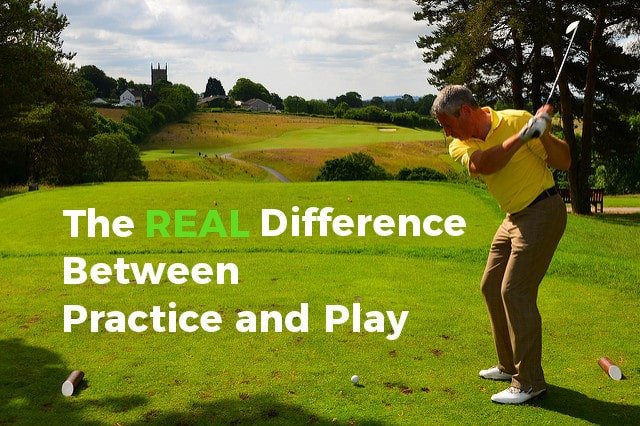
Pressure in golf
In a tournament round, most golfers feel some pressure to play well. This usually comes from within, and in some cases from parents or coaches (without them knowing it). You feel like your game is about to be measured – all the effort you’ve been putting in practicing is about to be put to the test, and the results will be there for all to see. Are you becoming a better player or not? In a tournament we find out…
Golfers are inherently competitive and they want to prove themselves against other players. In a tournament, you’re up against the field, so there’s pressure from having your game measured in relation to other players.
Fear in golf
Fear doesn’t really exist in practice, but in tournaments it exists in many forms: fear of failure (finding out you aren’t good enough), fear of trouble (where you don’t want to hit it), fear of what others will think (potential embarrassment), fear of a ruining a good score or getting off to a bad start etc. It’s important that you understand more about what type of fear you are facing and how it changes your focus.
In tournaments, you’re more aware of the things you fear, which means your mind is not as quiet (a pre-requisite for a fluid swing). Your focus in a practice round is on the target and your routines, but in tournaments, there’s noise from the things you fear might happen. The tendency becomes more about playing to avoid the things you fear, instead of being aggressive and swinging to the target.
Consequences
In a practice round there are fewer consequences. As your score is not being measured, there’s no real penalty to missing the target. Once you’ve chosen a target, you can play without really focusing on the trouble. In a tournament however, trouble such as water, out of bounds and trees can mean dropping 2-3 shots, so immediately, hitting the target becomes more important. Not only is there a consequence to missing in tournaments, there’s a consequence to making. E.g. If you’re standing over a chip shot knowing that getting up and down will win the tournament, it’s hard not to think about that future consequence, which can also affect focus and the way that shot is played.
This creates a shift from “just hitting golf shots” to what the shot means in relation to your overall success.
Physical changes in your swing or stroke
When we experience those things that we’ve discussed above, they clearly cause mental, emotional and physical changes. In a practice round, our focus is clear and the mind is quiet (mental), we’re playing from a low emotional state, and tension in the muscles is low (physical) – we’re able to move fluidly and access our best swing more often.
However, if we allow fear and pressure to set in, this can cause the following, which will cause changes to our technique:
- Increased grip pressure
- Tension in the muscles (less fluidity)
- Change in tempo
How mental coaching for golf can help
During mental coaching for golf, we work on techniques to reduce fear and increase focus on a good process. To become a top player (whether at your local club or in the world), you’ll need to learn how your mental, emotional and physical state is changing during rounds and what to do to guide yourself back to your high performance state. E.g. being aware of – tension, tempo, grip pressure, breathing, where your focus is, how quickly or slowly you are walking etc. Every round is different, but if you know what you are looking out for, you’ll consistently play within your performance state of mind. The mind is malleable, meaning you can change your habits and the way you think. Just as in the same way you train your swing, you can train your brain.
Mental coaching for golf is about:
Focusing on a process: your unique plan to accessing your best skills during your shot routine
Staying present (fear only exists in the future)
Responding well to bad shots (acceptance)
Building confidence and setting goals
Becoming self-aware, so you can notice changes in your mental, emotional and physical state, and with the right tools, shifting towards your ideal performance state during rounds.
If you’d like a free 15 minute consultation to discuss your game and how I might be able to help you, please click: Mental coaching for golf.
Photo was taken by Neville Wootton and adapted.
